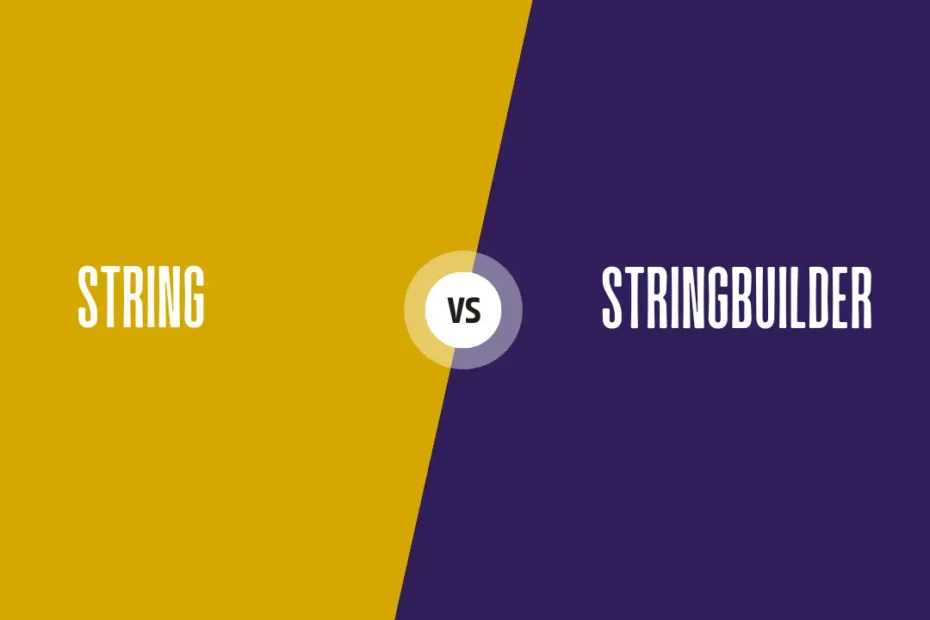In c# String vs StringBuilder are both used to manipulate and work with text, but they have different characteristics and are suited for different scenarios. Here’s a breakdown of the key difference between String and StringBuilder:
Difference Between String and StringBuilder
String:
- Immutable:
Stringobjects in C# are immutable, which means their values cannot be changed after they are created. Any operation that appears to modify a string actually creates a new string object with the modified content.
- Memory Overhead:
- Since strings are immutable, performing operations that modify the string (e.g., concatenation, substring extraction) can lead to increased memory usage and performance overhead, especially in scenarios where many modifications are required.
- Performance Consideration:
- If you perform a lot of string manipulations, such as concatenating strings in a loop, the performance can degrade due to the creation of numerous intermediate string objects.
- Usage:
Stringis suitable when you have static or infrequently changing text data. For example, when you’re working with constant text, displaying data, or when the text doesn’t change much during the application’s lifetime.
StringBuilder:
- Mutable:
StringBuilderis a mutable class that allows you to efficiently modify the content of a string without creating new instances. It provides methods for appending, inserting, and modifying characters or strings within the text.
- Memory Efficiency:
StringBuilderis more memory-efficient and performs better for scenarios where you need to perform a series of modifications to a string. It avoids creating unnecessary intermediate objects.
- Performance Consideration:
- When you need to perform multiple string manipulations, such as concatenating strings in a loop,
StringBuildercan significantly improve performance by minimizing memory allocations and object creations.
- When you need to perform multiple string manipulations, such as concatenating strings in a loop,
- Usage:
StringBuilderis recommended when you need to build strings dynamically or when you’re repeatedly modifying the contents of a string in a loop or other iterative processes.
Example of using StringBuilder:
csharpCopy codeusing System;
using System.Text;
class Program
{
static void Main()
{
StringBuilder builder = new StringBuilder();
builder.Append("Hello");
builder.Append(" ");
builder.Append("World!");
string result = builder.ToString();
Console.WriteLine(result);
}
}
Conclusion
In summary, use String for scenarios where the text is relatively static, and use StringBuilder when you need to efficiently build or modify strings, especially in scenarios involving loops or multiple modifications. StringBuilder is designed to minimize memory overhead and improve performance when working with dynamically changing strings.

Pingback: Difference Between string and String in C#
Pingback: Difference Between Mutable and Immutable in C# - differenceguru.com
Pingback: Difference Between Typecast and Convert class in c#